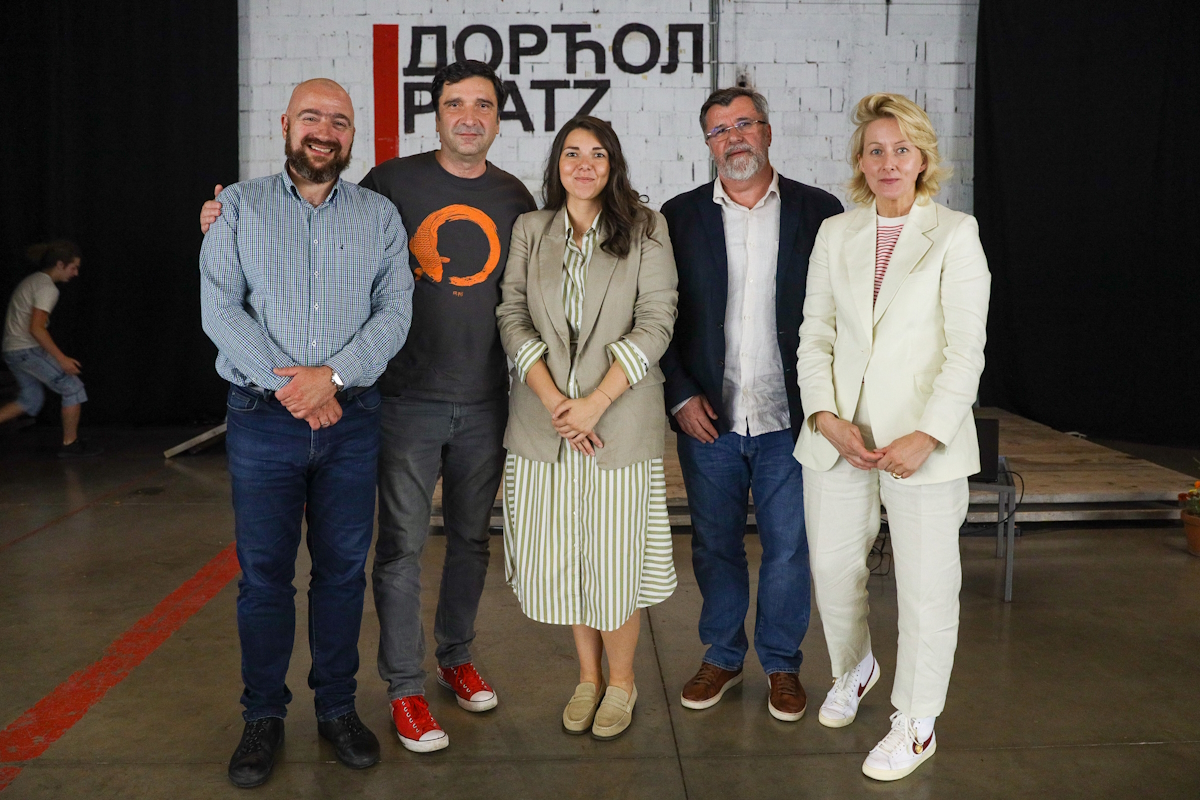After the tragic events that happened in Serbia at the beginning of May at the Elementary School ’Vladislav Ribnikar’ and in the vicinity of the city of Mladenovac, it is necessary to focus ’on the emotional literacy of children, which must start first with the education of their parents’, was the conclusion of the
’A Cup of Coffee with a Psychologist’ panel discussion, which was held in front of a packed hall at Dorćol Platz on the topic ’Serbia After the Tragedies - Do we Have Empathy?’
The message of a psychologist Ivana Jakšić on the panel discussion organized by Hemofarm Foundation is that parents must talk more with their children.
’I believe that parents want to do it, but the question is do they know how to do it, are they supported, do they have a place to learn that, is there someone to look at what is happening in a home atmosphere,’ she said. and added that, with regard to such extreme cases of violence, the family environment comes first, what patterns the child learned within the family, but also how the socio-emotional development of the child proceeds within the family, whether the child's needs are recognized, whether the child becomes emotionally literate.
’In a large number of cases like this we come across abuse, very problematic family situations’, said Jakšić and emphasized that it is very important what happened in the earliest development of the child within the family. She assessed that a very strong empathy was awakened in people after what happened in the school ’Ribnikar’ and said that we need a better ’system of prevention and protection’.
A psychologist Vladimir Borovnica said that ’50 percent of mental health problems starts until the age of 14 and 75 percent until the age of 24, 25’, and that mental health of children and young people is the introduction into mental health problems.
He pointed out that, when talking about mental health protection, the priority must be on strengthening the service for the protection of mental health of children and young people, ’which is underdeveloped in our country’.
A journalist Veran Matić said that what is happening now in Serbia is the expected consequence of the horrible militarization of the society which has lasted 30 years and added that ’demilitarization of the society is very important’.
’We say that we are the third nation in the world in terms of the amount of weapons. It doesn't just mean the quantity of weapons, it means the nature of our relationship to each other. Violence towards each other in a close relationship is embedded in our DNA,’ Matić said, suggesting that it is important to work on the decontamination of society as well.

The panel discussion
’A Cup of Coffee with a Psychologist’ is a part of the campaign for fighting depression and stigma called
’Unbreakables’ through which more than 15,000 people received help and support of experts, psychologists and psychiatrists working on SOS line for fight against depression and stigma 0800 001 002 and email
podrska@nesalomivi.rs. Help and support provided by the experts of four Special Hospitals for Psychiatric Diseases in Vršac, Kovin, Novi Kneževac and Gornja Toponica are free, anonymous and available 24/7.